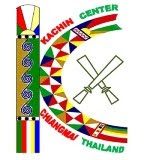Throughout the past week, Burma’s new government has released a number of statements signifying its attitude to commence the settlement course with ethnic armed-groups and political opponents domestic and exile. Regrettably, those offers have been considered invalid.
According to the speech delivered by President of the Republic of the Union of Myanmar (Burma) U Thein Sein at the first Pyidaungsu Hluttaw (Union Parliament) second regular session, he and his government has been gearing up to work with the international community, the government’s media highlighted on Monday.
"For instance, the president said, “Our government has inherited traditional foreign policy which has never been harmful to international and regional stability and security and it is maintaining friendly relations with global nations. What’s more, we are trying to stand tall as a dutiful member of the global family in international and regional organizations. For this reason, we have officially proposed to take the ASEAN chairmanship in 2014. We are extending the hand of friendship to all global nations and all international organizations including the ASEAN.”At the same time, Union Minister for Foreign Affairs Wunna Maung Lwin received Human Rights Special Rapporteur on Myanmar (Burma) Mr Tomas Ojea Quintana and party at the ministry in Naypyitaw on Monday. They discussed progress of Myanmar, improvement and protection of human rights.
"The UN Special Rapporteur for Human Rights in Myanmar (Burma), Mr Quintana, has constantly recommended the establishment of the UN-mandated Commission of Inquiry (UN-COI) into war crimes and crimes against humanity in Burma. He also warns that ‘ failing to act on accountability in Myanmar will embolden the perpetrators of international crimes and further postpone long-overdue justice.’Former UN Special Rapporteurs on Burma, Prof Paulo Sergio Pinheiro and Yozo Yokota support it.
However, Thein Sein emphasized that his new government was working for “citizen rights.”
“We are ready to co-operate with the international community,” he added.
"Thein Sein concluded his speech by saying, “We know what happen to people and what people want. And we are striving our best to fulfill their needs to the full extent. To conclude my speech, I promise that our government as a democratically-elected government will do our best for the interests of the people.”
"Thein Sein told members of parliament that his government will pay attention to oppositions’ suggestions. He said the government has already prepared to talks on peace with armed ethnic groups since the progress of the frontier areas is dependent on stability.But, the Kachin Independence Organization (KIO) has rejected an offer of new peace talks from the President Thein Sein government which released a ceasefire statement on August 18.
On 19 August, Thein Sein met key opposition leader Aung San Suu Kyi for the first in the highest level exchange of ideas between the Nobel laureate and the authorities since her release from house arrest in November, after the controversial election.
The journalists were allowed to attend Monday’s second Parliamentary session under some limitations made by the current government. Burma’s democratic parliamentary system was stopped when late general Ne Win seized power in 1962.
Thein Sein’s government has set its sights on being allowed to hold the chairmanship of the Association of Southeast Asian Nations in 2014 — a year before the country’s next scheduled polls.
"Although Thein Sein’s government seems to make softer its political stance against its opponents in recent weeks, it fails to do more tangible improvement. For example, the release of political prisoners and approval of press freedom remain intangible.To sum up, if the president has honest political aspiration, firstly, he should release political prisoners and secondly, declare a nationwide ceasefire to show evidence for meaningful political dialogue with all dissident groups. Thirdly, the president should broadcast a general amnesty in quest of peace, stability and real development of the country.
Source from Asian Correspondent
http://asiancorrespondent.com/63151/does-burma%E2%80%99s-president-really-know-what-people-want/






No comments:
Post a Comment